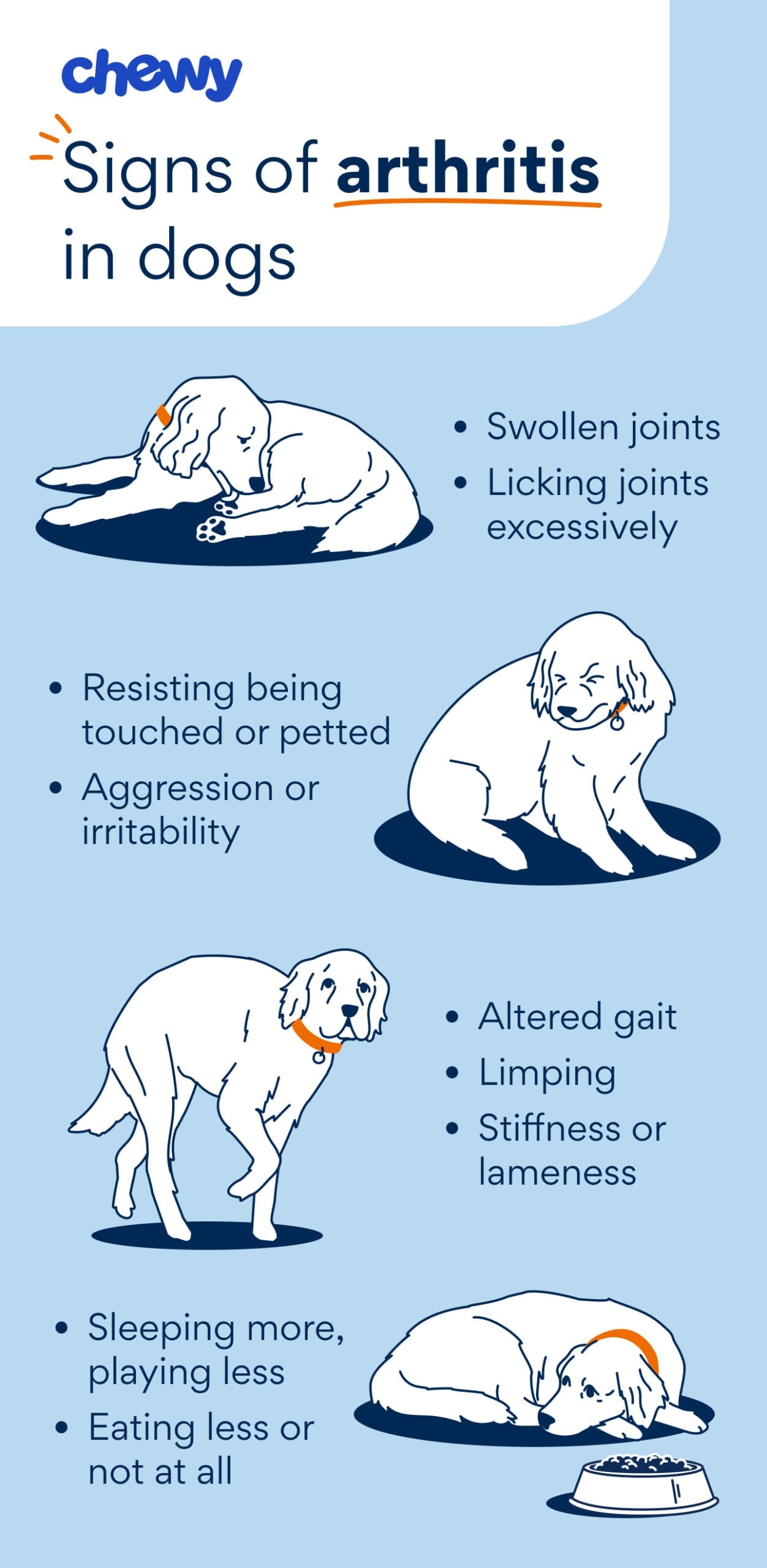Arthritis is a prevalent condition in dogs, particularly as they age, causing inflammation, swelling, and tenderness in one or more joints. This can stem from various factors including genetics, age, infections, diseases, injuries, or overuse. If your canine companion is suffering from arthritis, understanding how to help them manage their pain and improve their joint health is crucial. A multimodal approach, combining different medications and joint supplements, is often the most effective strategy for maintaining a good quality of life. Simple changes to your dog’s daily routine and environment can also make a significant difference. Always consult your veterinarian before starting any new treatment plan for your dog.
Key Strategies for Managing Dog Arthritis
Weight Management is Crucial
Maintaining a healthy weight is a cornerstone of relieving joint pain in dogs. Excess weight puts additional pressure on joints, exacerbating pain and discomfort. By controlling your dog’s weight, you can significantly ease their discomfort as they get older. Discuss your dog’s ideal weight and long-term weight management strategies with your veterinarian.
The Role of Exercise and Physical Therapy
Regular, moderate exercise is beneficial for dogs experiencing joint pain. Aim for short walks, around 10-15 minutes, three to four times a day, maintaining a consistent routine without high-impact activities like running or jumping. This helps exercise your dog without increasing stress or pain. Your vet may also recommend consulting a certified small animal physical rehabilitation practitioner. They can guide your dog through therapeutic exercises, including passive stretching, range of motion exercises, controlled walking with obstacles, and underwater treadmill sessions.
Physical therapy for dogs can be instrumental in restoring or improving mobility, function, and overall quality of life. The objectives of physical therapy often include weight loss, pain reduction, decreased inflammation, enhanced range of motion, improved balance, and increased muscle strength. Common techniques include passive range of motion exercises, treadmill work (including underwater treadmills), massage, and specific therapeutic exercises.
Arthritis Medications for Dogs
While there is no cure for arthritis in dogs, several medications can effectively manage joint pain and inflammation.
- Librela: This is a monthly injection administered by your veterinarian, utilizing anti-nerve growth factor (NGF) monoclonal antibody therapy to treat osteoarthritis-associated pain in dogs.
- Corticosteroids: In certain situations, steroids may be used for short or long-term management of arthritis-related inflammation and pain. It’s crucial to note that steroids and NSAIDs should never be used concurrently due to the risk of side effects like stomach ulcers. Always inform your veterinarian about all medications your pet is currently taking.
Beneficial Dog Arthritis Supplements
When selecting supplements for dog arthritis, prioritize those containing:
- Methylsulfonylmethane (MSM)
- Glucosamine hydrochloride
- Long-chain omega-3 fatty acids (EPA and DHA)
- Eicosatetraenoic acid (ETA)
- Chondroitin sulfate
- Green-lipped mussel
These ingredients are known for their supportive effects on canine joint health. For breeds predisposed to arthritis, starting joint supplements as early as 8 weeks of age is often recommended. Be aware that supplements or dietary additives can sometimes cause gastrointestinal upset, so consulting your vet before administration is essential.
Specialized Dog Food for Arthritis
Beyond general over-the-counter (OTC) diets that may contain omegas or glucosamine and chondroitin, there are prescription veterinary diets specifically formulated to support joint mobility.
Exploring Alternative Therapies
As a dedicated pet parent, you might consider alternative therapies to complement primary treatments for your dog’s arthritis pain. Some options include:
- Acupuncture: This involves inserting thin needles into specific points on the body. Clinical evidence suggests that acupuncture, when used alongside a multimodal therapy approach, can reduce chronic joint pain in dogs.
- Laser Therapy: Low-level lasers utilize penetrating light to enhance oxygen and blood flow to joints, thereby reducing inflammation and pain.
- Shockwave Therapy: This therapy uses high-intensity sound waves to help decrease inflammation and treat arthritis.
- Electrical Stimulation: Also known as neuromuscular stimulation, this technique is used to strengthen muscles and mitigate muscle wasting in dogs with mobility issues. Transcutaneous electrical nerve stimulation (TENS) can also provide pain relief.
Lifestyle Modifications for Comfort
Implementing simple modifications at home can significantly alleviate your dog’s pain and anxiety.
- Nonslip Rugs: Dogs suffering from arthritis may fear walking on slippery surfaces like hardwood or tile due to limited mobility and the potential for painful falls. Using nonslip mats, rugs, and carpets on these floors can help your dog navigate their environment with more confidence. Placing nonslip rugs at the top and bottom of stairs, and near favorite resting spots like couches and beds, can reduce joint impact.
- Orthopedic Dog Beds: Low-profile orthopedic dog beds can ease joint pain and make it easier for your dog to stand up without struggling. Ensure your pet’s resting and sitting areas have thick, supportive bedding with nonslip bases to prevent injury or pain when they transition to a standing position.
Finding the right arthritis protocol for your dog often involves a combination of medications, therapies, and aids to ensure their comfort and happiness. The ultimate goal is to provide your furry companion with a high quality of life, filled with pain-free days. Discuss with your veterinarian to determine the most suitable combination of therapies and arthritis medications for your dog.

